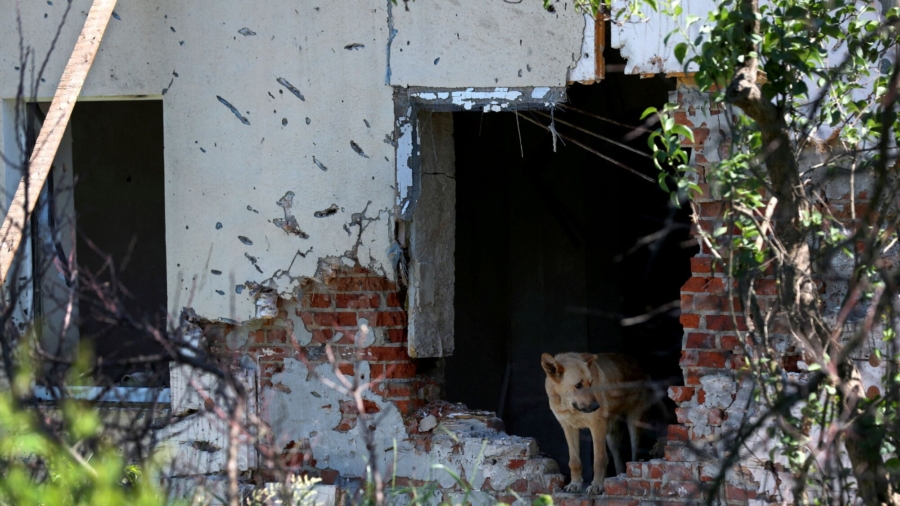KYIV/DRUZHKIVKA, Ukraine—Ukrainian troops battled Russians street-to-street in the ruins of Sievierodonetsk on Tuesday, trying to hold onto gains from a counter-offensive that had reversed momentum in one of the bloodiest land battles of the war.
The fight for the small industrial city has emerged as a pivotal battle in eastern Ukraine, with Russia focusing its offensive might there in the hope of achieving one of its stated war aims—to fully capture surrounding Luhansk Province on behalf of separatist proxies.
After withdrawing from nearly all the city in the face of the Russian advance, Ukrainian forces staged a surprise counter-attack last week, driving the Russians from a swath of the city centre.
“Our heroes are not giving up positions in Sievierodonetsk,” President Volodymyr Zelenskyy said in an overnight video address, describing fierce street fighting in the city. Earlier, he told reporters at a briefing the Ukrainians were outnumbered but still had “every chance” of fighting back.
Before Ukraine’s counter-offensive, Russia had seemed on the verge of encircling Ukraine’s garrison in Luhansk Province, cutting off the main road to Sievierodonetsk and its twin city Lysychansk across the Siverskiy Donets river.
But following the counter-offensive, Zelenskyy made a surprise visit to Lysychansk on Sunday, personally demonstrating that Kyiv still had an open route to its troops’ redoubt.
Ukraine’s defence ministry said Russia was throwing troops and equipment into its drive to capture Sievierodonetsk. Luhansk Governor Serhiy Gaidai said on Monday the situation had worsened since the Ukrainian defenders had pushed back the Russians over the weekend.

Refocus
Russia has been pressing from three main directions—east, north and south—to try to encircle the Ukrainians in the Donbass. Russia has made progress, but only slowly, failing to deal a decisive blow or to encircle the Ukrainians.
In its nightly update, the Ukrainian military said two civilians were killed in Russian shelling in the Donbass and Russian forces had fired at more than 20 communities, using artillery and air strikes.
Britain’s defence ministry said on Tuesday that Russia was still trying to cut off Sievierodonetsk by advancing from the north near Izium and from the south near Popasna. It said Russia’s progress from Popasna had stalled over the last week, while reports of heavy shelling near Izium suggested Moscow was preparing a new offensive there.
“Russia will almost certainly need to achieve a breakthrough on at least one of these axes to translate tactical gains to operational level success and progress towards its political objective of controlling all of Donetsk Oblast,” it said.
The Donetsk regional governor, Pavlo Kyrylenko, told Ukrainian television there was constant shelling along the front line, with Russia attempting to push towards Sloviansk and Kramatorsk, the two biggest Ukrainian-held cities in Donetsk.
Ukraine is one of the world’s biggest exporters of grain, and Western countries accuse Russia of creating risk of global famine by shutting Ukraine’s Black Sea ports.
Zelenskyy said Kyiv was gradually receiving “specific anti-ship systems,” and that these would be the best way to break a Russian blockade of Ukrainian ports.
Moscow denies blame for the food crisis, which it says was caused by Western sanctions.
Russia’s U.N. envoy, Vassily Nebenzia, stormed out of a U.N. Security Council meeting on Monday as European Council President Charles Michel, addressing the 15-member body, accused Moscow of fueling the global food crisis with its invasion of Ukraine.
Russian Foreign Minister Sergei Lavrov said Moscow would respond to Western deliveries of long-range weapons by pushing Ukrainian forces further back from Russia’s border.
By Pavel Polityuk and Abdelaziz Boumzar

